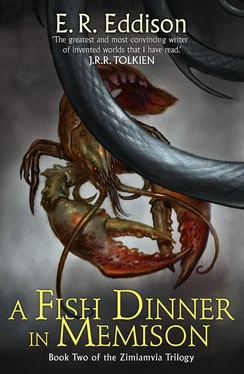The lunatic, the lover, and the poet,
Are of imagination all compact.
Three broad considerations may here be touched on:
(1) It does not seem necessary to postulate a plurality of ultimate values. Truth, Beauty, Goodness, are commonly so postulated. The claim of Truth, however, can hardly survive examination. On the one hand, the empirical truths of science or the abstract truths of mathematics are ‘values’ either as a means to power, or else for a kind of rightness or perfection which they seem to possess: a perfection which seems to owe its value to a kind of Beauty. On the other hand, Truth in the abstract (the quite neutral judgement, ‘That which is, is’) can have no value whatsoever: it acquires value only in so far as ‘that which is’ is desirable in itself, and not merely on account of its ‘truth’. If Schopenhauer’s The World as Will and Idea is a statement of the truth, then truth has, ultimately, a negative value and we are better off without it (except as a means to power, etc.). Truth, therefore, is only an ultimate value if it is good. But the ‘Good’, again, is ambiguous, meaning both (a) good as an end to be desired, and (b) moral good. In sense (a) it is surely tautologous to speak of the ‘good’ as distinct from the beautiful; in sense (b) it is arguable (and, as I myself hold, true) that acts are morally ‘good’ only in so far as, in the last analysis, they tend to create, serve, or safeguard, Beauty. The trinity of so-called ‘ultimate values’ is thus reduced to one.
(2) No sane theory of values will ultimately square with the facts of this world as we know it ‘here and now.’ But ultimate value, as we have seen, is one of the ‘bed-rocks’: not so, however, this world, which we know only empirically and as a particular phase of our other ‘bed-rock’ ( viz. consciousness). Accordingly, the test of any metaphysic is not that it should square with the world as we know it, but that it should square with the ultimate value. (Cf. Vandermast’s words in Mistress of Mistresses : ‘In this supermundal science concerning the Gods, determination of what Is proceedeth inconfutably and only by argument from what Ought to be.’)
(3) Concrete reality, whether as consciousness or as value, has two aspects which are never in fact separated or separable: the One and the Many: the Universal and the Particular: the Eternal and the Temporal: the Never Changing and the Ever Changing. It is the inseparability of these modes of Being that makes it idle to seek abstract Beauty, Truth, Goodness, apart from their particular manifestations, and equally idle (conversely) to try to isolate the particulars. The Many are understandable only as manifestations of the One: the One, only as incarnate in the Many. Abstract statements, therefore, such as have been occupying our attention in the proceedings pages, can bear no nearer relation to the concrete truths which they describe than (for example) the system of latitude and longitude bears to the solid earth we live on.
It is on these terms only, then (as an explanation of our ‘latitude and longitude’), that it is possible to sum up in a few lines the conception which underlies Mistresses of Mistresses and A Fish Dinner in Memison .
In that conception, ultimate reality rests in a Masculine-Feminine dualism, in which the old trinity of Truth, Beauty, Goodness, is extended to embrace the whole of Being and Becoming; Truth consisting in this – That Infinite and Omnipotent Love creates, preserves, and delights in, Infinite and Perfect Beauty ( Infinitus Amor potestate infinitâ Pulchritudinem infinitam in infinitâ perfectione creatur et conservatur ). Love and Beauty are, in this duality, coequal and coeternal; and, by a violent antinomy, Love, owing his mere being to this strengthless perfection which he holds at his mercy, adores and is enslaved by her, while Beauty (by a like antinomy) queens it over the very omnipotence which both created her and is her only safeguard.
Ultimate reality, as was said above, must be concrete; and an infinite power, creating and enjoying an infinite value, cannot be cribbed or frozen in a single manifestation. It must, on the contrary, be capable of presenting itself in an infinite number of aspects to different minds and at different moments; and every one of these aspects must be true and (paradoxically) complete, whereas no abstract statement, however profound in its analysis, can ever be either complete or true. This protean character of truth is the philosophical justification for religious toleration; for it is almost inconceivable that truth, realized in the richness of its concrete actuality, should ever present itself to two minds alike. Churches, creeds, schools of thought, or systems of philosophy, are expedient, useful or harmful, as the case may fall out. But the ultimate Vision – the ‘flesh and blood’ actuality behind these symbols and formulas – is to them as the living body is to apparel which conceals, disguises, suggests, or adorns, that body’s perfections.
This ‘flesh and blood’, then, so far as it shapes itself in Mistress of Mistresses and is on the way to further definition in the Fish Dinner , shows this ultimate dualism as subsisting in the two supreme Persons, the divine and perfect and eternal He and She, Zeus and Aphrodite , ‘more real than living man’. All men and women, all living creatures, the whole phemonenal world material and spiritual, even the very forms of Being – time, space, eternity – do but subsist in or by the pleasure of these Two, partaking (every individual soul, we may think, in its degree), of Their divine nature—
‘The Lord possessed Me in the beginning of His way, before His works of old. I was set up from everlasting, from the beginning, or ever the earth was … When He prepared the Heavens I was there: when he set a compass on the face of the depth: when He established the clouds above: when He strengthened the fountains of the deep: when He gave to the sea His decree, that the waters should not pass His commandment: when He appointed the foundations of the earth: then I was by Him, as one brought up with Him, and I was daily His delight, rejoicing always before Him … Whoso findeth Me findeth life, and shall obtain favour of the Lord. But he that sinneth against me wrongeth his own soul: all they that hate Me love death.’
( Proverbs , VIII : there spoken by Wisdom ; but it is truer of a less mundane matter. For wisdom can never be an ultimate value but a means only to something beyond itself, e.g. a guide to action; whereas She [ l’inutile Beauté ] is not a means but the end and mistress of all action, the sole thing desirable for Herself alone, the causa immanens of the world and of very Being and Becoming: ‘Before the day was, I am She’.)
Mundane experience, it must be admitted, goes, broadly, against all this: it affords little evidence of omnipotent love, but much of feeble, transient, foolish loves: much of powerful hatreds, pain, fear, cruelty. ‘ Tout passe, tout casse, tout lasse ’: death, disease, deformity, come to mortals indiscriminately. ‘And captive good attending captain ill’ – this and all the accusations of Shakespeare’s LXVIth sonnet are true of ‘this vain world’, and always have been true. This world, to say the best of it, has always been both good and bad; to say the best of it, it is a flux, in which, on the whole, the changes compensate each other.
But (standing upon the rock – the Zeus–Aphrodite dualism), we are faced, in this imperfection of mundane experience, with the problem of Evil; and (standing upon that rock) the only solution we can accept is one that shall concede to Evil something less than reality. Lame excuses for the impotence, unskilfulness, inattentiveness, callousness, or plain malevolence of God Almighty, to which all other solutions of the problem reduce themselves, are incompatible with the omnipotence of Love, which can hardly be supposed to possess, in action, the attributes of an idiot or a devil. (It may be said, no doubt, that Love is not omnipotent but subject to some dark  or necessity that binds even a God. Obviously this can neither be proved nor disproved, but it is repugnant to my judgement. For, if true, it means that the Scheme is indeed rotten at the core.)
or necessity that binds even a God. Obviously this can neither be proved nor disproved, but it is repugnant to my judgement. For, if true, it means that the Scheme is indeed rotten at the core.)
Читать дальше

 or necessity that binds even a God. Obviously this can neither be proved nor disproved, but it is repugnant to my judgement. For, if true, it means that the Scheme is indeed rotten at the core.)
or necessity that binds even a God. Obviously this can neither be proved nor disproved, but it is repugnant to my judgement. For, if true, it means that the Scheme is indeed rotten at the core.)










